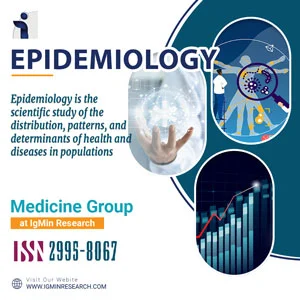Open Access Policy refers to a set of principles and guidelines aimed at providing unrestricted access to scholarly research and literature. It promotes the free availability and unrestricted use of research outputs, enabling researchers, students, and the general public to access, read, download, and distribute scholarly articles without financial or legal barriers. In this response, I will provide you with an overview of the history and latest resolutions related to Open Access Policy.
About
Epidemiology is the scientific discipline that focuses on the study of how diseases are distributed across populations and the factors that influence their occurrence. This field plays a critical role in public health by identifying patterns, causes, and effects of health conditions, aiming to prevent outbreaks and control the spread of diseases. Researchers in Epidemiology investigate disease patterns, risk factors, and health outcomes to develop evidence-based strategies for disease prevention, surveillance, and health promotion.
The study of Epidemiology integrates methodologies from biostatistics, environmental sciences, and social sciences to assess health risks and implement preventive measures. By leveraging data analysis, field research, and population studies, this field is essential for shaping public health policies, improving healthcare systems, and enhancing global health security. Advancements in epidemiological research are pivotal for responding to emerging health threats, improving community health, and reducing the burden of chronic and infectious diseases.
Medicine Group (1)

Why publish with us?
Global Visibility – Indexed in major databases
Fast Peer Review – Decision within 14–21 days
Open Access – Maximize readership and citation
Multidisciplinary Scope – Biology, Medicine and Engineering
Editorial Board Excellence – Global experts involved
University Library Indexing – Via OCLC
Permanent Archiving – CrossRef DOI
APC – Affordable APCs with discounts
Citation – High Citation Potential
Which articles are now trending?
Research Articles
- Investigation of Lateral Vibrations in Turbine-generator Unit 5 of the Inga 2 Hydroelectric Power Plant
- Correlation between Different Factors of Non-point Source Pollution in Yangtze River Basin
- Integrated Multi-fidelity Structural Optimization for UAV Wings
- Methodology of the Professional-Business Game for the Development of a Cadet Leader in Professional Training Courses (L-1B) of the Tactical Level of Military Education
- Melanocytic Nevi Classification using Transfer Learning
- Potentially Toxic Metals in Cucumber Cucumis sativus Collected from Peninsular Malaysia: A Human Health Risk Assessment
Advertisement










